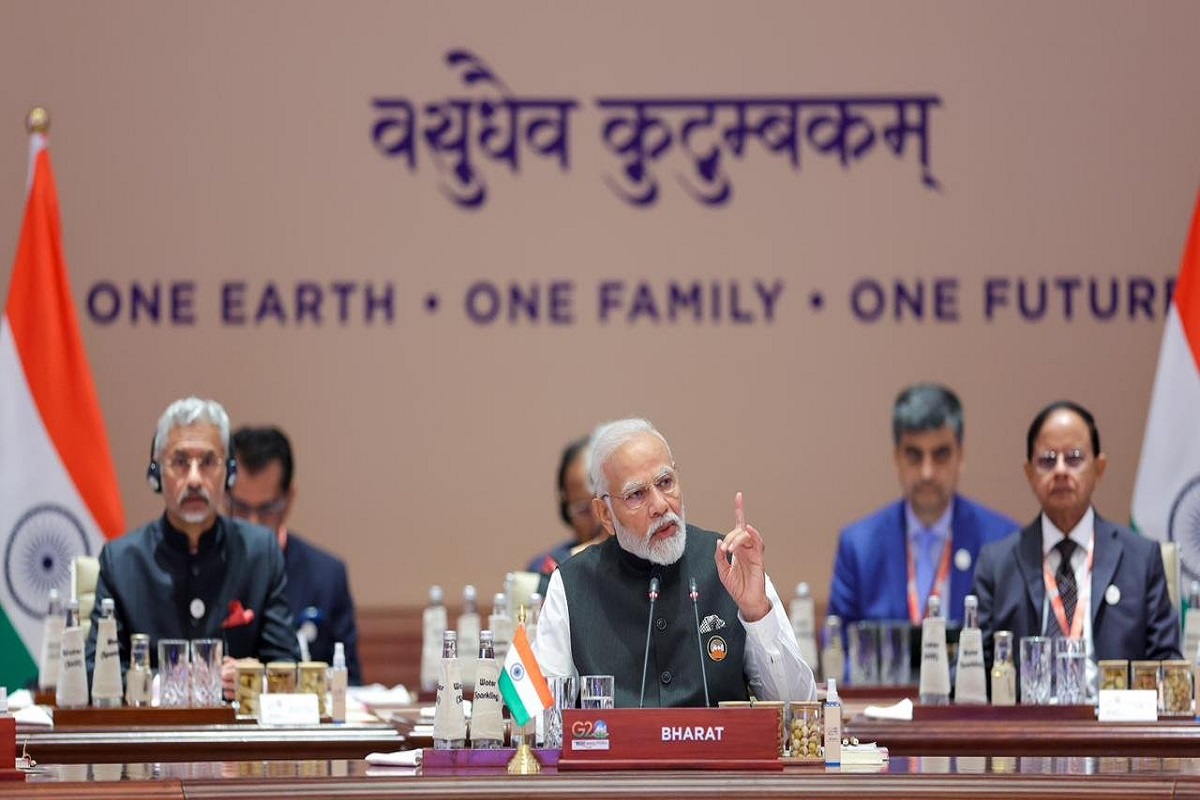PM Modi to inaugurate SOUL Leadership Conclave in Delhi today
Prime Minister Narendra Modi will inaugurate the first edition of the SOUL Leadership Conclave in Bharat Mandapam, New Delhi, on Friday.

India Saturday achieved a major feat after securing consensus on the G20 New Delhi Leader’s Declaration, including a statement on the Russia-Ukraine war. It took hundreds of hours and more than three hundred bilateral meetings between officials of India and other G20 members. This was a historic achievement given the member countries’ difference of opinion on highly sensitive geopolitical issue of Ukraine war. The G20 was divided in two sections on including Russia-Ukraine war in the joint declaration–one group supporting Ukraine’s narrative and the other supporting Russia’s position. However, India’s neutral stance made sure the New Delhi G20 Summit Leader’s Declaration is adopted with 100 per cent consensus on all paragraphs.
While the Russia-Ukraine war was the most complex part of the G20 New Delhi Leader’s Declaration, there were several other highly important aspects that were included in joint declaration. Be it food security, green development pact, development of digital public infrastructure or gender equality, the New Delhi Leader’s Declaration has committed to address several issues of global interests.
Advertisement
Decoding the G20 New Delhi Leader’s Declaration
Advertisement
On Global Economic Situation: The joint declaration noted that cascading crises have posed challenges to long-term growth and resolved to implement well calibrated macroeconomic and structural policies to promote sustainable and inclusive development.
“Facing an uneven recovery, and cognizant of the need to boost long-term growth, we will implement well calibrated macroeconomic and structural policies. We will protect the vulnerable, through promoting equitable growth and enhancing macroeconomic and financial stability. Such an approach will help resolve the cost-of-living crisis and unlock strong, sustainable, balanced, and inclusive growth.”
The joint declaration also recognized the role of private enterprise in accelerating the growth and resolved to with private sector. It called for facilitating Foreign Direct Investments towards sustainable business models and create “inclusive, sustainable, and resilient global value chains, and support developing countries to move up the value chain.”
Eliminating Hunger and Malnutrition: The G20 leaders committed to enhance the global food security and nutrition for all. They resolved to enhance efforts to strengthen research cooperation on climate-resilient and nutritious grains such as millets, quinoa, sorghum, and other traditional crops including rice, wheat and maize.
They committed to “facilitate open, fair, predictable, and rules-based agriculture, food and fertilizer trade, not impose export prohibitions or restrictions and reduce market distortions, in accordance with relevant WTO rules.”
On Global Health: In the joint G20 New Delhi Leader’s Declaration, members reached consensus on the need to strengthen the global health architecture, with the World Health Organization (WHO) at its core.
“Focus on strengthening primary health care and health workforce and improving essential health services and health systems to better than pre-pandemic levels, ideally within the next 2-3 years, as well as continue progress towards polio eradication and ending ongoing epidemics including AIDS, tuberculosis, malaria, hepatitis and water-borne and other communicable diseases, also recognising the importance of research on long COVID,” the declaration read.
Green Development Pact: It envisages a plan to tackle the environmental crisis through global co-operation over the next decade. In their joint declaration, the G20 leaders recognized that the impacts of climate change are being experienced worldwide, particularly by the poorest and the most vulnerable, including in LDCs and SIDS.
The resolved to “tackle climate change by strengthening the full and effective implementation of the Paris Agreement and its temperature goal, reflecting equity and the principle of common but differentiated responsibilities and respective capabilities, in light of different national circumstances.”
On Education: The G20 leaders said, “We are committed to inclusive, equitable, high-quality education and skills training for all, including for those in vulnerable situations. We recognize the importance of investment in supporting human capital development.”
Advertisement